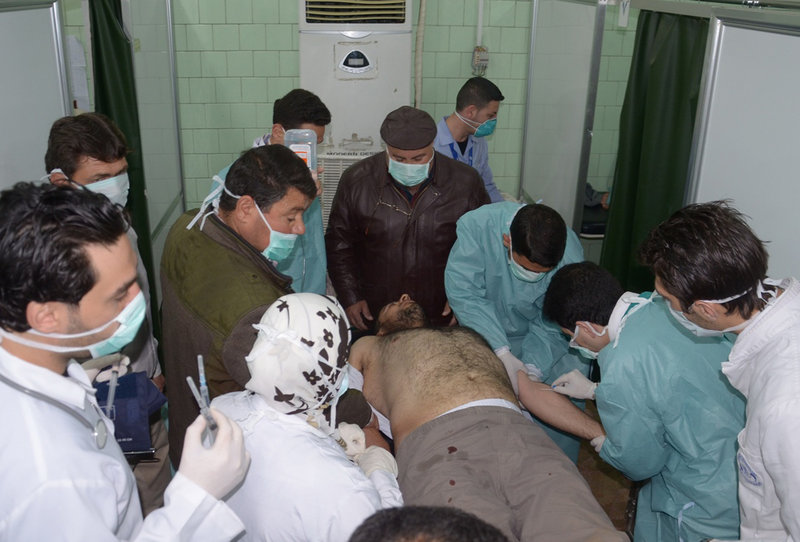BEIRUT – The strange case of an alleged chemical attack in Syria has taken some odd turns.
Like so many other mass-casualty attacks in Syria, the alleged poison-gas strike Tuesday in northern Syria has become a case of each side in the conflict blaming the other – and counting on foreign allies to back their version of events, even if the facts seem blurry at best.
Still unanswered amid the barrage of rhetoric are the fundamental questions: Was there a chemical attack? And, if so, who was behind it?
On Tuesday, the government of President Bashar Assad announced that “terrorists” – its usual designation for rebels – had launched a toxic-gas rocket attack that left 25 people dead and 110 wounded in the town of Khan al-Asal, outside the northern city of Aleppo. Damascus demanded a United Nations investigation, which the world body on Thursday promised to carry out.
The alleged attack seemed to have the potential to elevate the two-year Syrian conflict to an urgent new level of international concern. President Obama had said that any government use of chemical weapons – or any sign of such arms being transferred to other powers – would be a “red line” that could trigger a direct U.S. response, widely interpreted as a threat of military intervention. The opposition promptly rejected any responsibility, blaming the government for the chemical assault.
Why would the Syrian military unleash chemical weapons on a government-held area?
Some pro-rebel spokesmen suggested that the missile carrying the toxic gas had missed its intended target in rebel-held terrain and mistakenly detonated near government troops. There were also allegations that the entire episode may have been crafted to discredit the rebels, who are already dealing with sundry public relations problems – such as al-Qaida-linked militants in their midst and the kidnapping earlier this month of 21 U.N. peacekeepers near the Golan Heights. (The peacekeepers were eventually released unharmed.)
The reactions of the United States, Russia and other foreign governments to the chemical weapons allegations generally tracked the nations’ allegiances in the Syrian conflict.
U.S. officials immediately expressed deep skepticism of any chemical strike. “So far we have no evidence to substantiate the reports that chemical weapons were used yesterday,” U.S. ambassador to Syria Robert Ford told the House Foreign Affairs on Wednesday in Washington.
Send questions/comments to the editors.



Comments are no longer available on this story